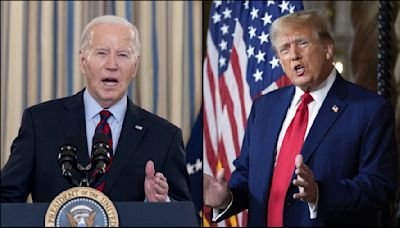In an unexpected twist, former United Nations ambassador Nikki Haley declared her exit from the presidential race, choosing to endorse former President Donald Trump instead. The decision marks a significant shift in Haley’s political trajectory and has sparked speculation about the future of the Republican Party and the dynamics of the upcoming presidential election.
Haley’s decision to drop out of the race comes as a shock to many political observers, who had viewed her as a leading contender for the Republican nomination. With her strong conservative credentials and experience in both state and international politics, Haley was seen as a formidable candidate capable of bridging the gap between the party’s establishment and its more populist factions.
In her statement announcing her withdrawal, Haley cited a desire to unify the Republican Party and focus on defeating the Democrats in the upcoming election. She praised Trump’s leadership and accomplishments in office, describing him as the best candidate to lead the party to victory in 2024. Haley’s decision to throw her support behind Trump is likely to bolster his standing within the party and could potentially solidify his position as the frontrunner for the Republican nomination.
Haley’s endorsement of Trump is significant not only because of her stature within the party but also because of the broader implications it carries for the Republican Party’s future direction. Trump’s grip on the party has remained strong since leaving office, despite facing criticism from some quarters for his role in the January 6th Capitol riot and his handling of the COVID-19 pandemic. Haley’s decision to align herself with Trump suggests that his influence within the party remains undiminished and that he continues to command the loyalty of key figures within the GOP.
The announcement has also reignited speculation about Haley’s political ambitions and whether she may be positioning herself for a future presidential run. While Haley has ruled out running in 2024, her decision to withdraw from the race and throw her support behind Trump could be seen as a strategic move to position herself as a key player within the party and lay the groundwork for a potential bid in the future. As one of the party’s most prominent figures, Haley’s endorsement carries considerable weight and could help shape the contours of the Republican primary race in future years.
Haley’s decision to back Trump has drawn mixed reactions from within the Republican Party. While some have praised her for putting the party’s interests ahead of her ambitions, others have criticized her for aligning herself with a divisive figure whose leadership style and policies have polarized the country. The announcement has also sparked debate about the future direction of the party and the extent to which Trump will continue to exert influence over its agenda and messaging.
Ultimately, Haley’s choice to exit the presidential race and endorse Trump marks a notable development in the evolving narrative of American politics. It underscores the enduring influence of Trump within the Republican Party and raises questions about the party’s ability to move beyond the divisions of the past and chart a new course for the future. As the 2024 election approaches, the dynamics of the Republican primary race are likely to be shaped by Haley’s decision and its implications for the party’s identity and direction.









